“Gary And His Demons” Q&A: We Talk To The Guys Behind VRV/Mondo’s Newest Series
A fun show made by some great guys. MASSIVE SPOILERS AHEAD.
Gary and His Demons is currently lighting up VRV’s Mondo stream with the adventures of a middle-aged chosen one who just can’t retire. I sat down with series creator and voice of the titular “Gary”, Mark Little; series producer Joshua Bowen; and director Lou Solis.

Mark, I know you’re a comic, but how did you get involved with the animation side of Gary?
ML: I had been working in kids’ animation for a little bit now, doing some writing and some voice work. Then Josh approached me, coincidentally, when Blue Ant was working with Bite on Mondo making short series for YouTube. So, I pitched a bunch of ideas, and as we were developing that, Blue Ant started to form their plan for Phase 2 of developing longer shows, and we started considering how to configure Gary for that. It also helped me realize that the show I wanted to make would be made more easily animated. I had tried to turn a lot of fantasy bullshit into live action, and it often does not work. (Laughs)

Josh, what made you want to work with Mark?
JB: The first thing was Mark’s reputation in the business. Obviously doing a bunch of sketch and standup in Toronto; he’s become a household name, at least here in Canada. Especially for the work he did with Picnicface and Space Riders. So the opportunity presented itself. As Mark mentioned, we were right at the end of the Bite on Mondo shorts. It was actually the last thing we made for Bite on Mondo, and we decided to go try and make it and see how it turns out. It was great that we were able to partner Mark and Lou [Solis] together. We made a fun little black-and-white demo, and it ended up working really well. Every layer from the writing, to the improv, to the art direction, to the animation, it all came together nicely, and it made me realize we should take this to the next level.
Lou, do you want to weigh in about when you came into the process?
LS: Probably around the same time, working with Josh on the Bite on Mondo. We [Solis Animation] are a small animation studio in Toronto working on a bunch of those Bite on Mondo shorts, and having the opportunity to work with Mark which was fantastic, and it’s grown into this fantastic show.
Josh, before Gary, you worked on a Canadian animated shorts program called Night Sweats. Was Gary ever on Night Sweats?
JB: No, that was the funny thing. Night Sweats was the compilation of Bite on Mondo. You can actually check it out on VRV now. I think for us, we did that shorts program and had already packaged everything for Teletoon. I actually don’t even know if Mark knows this, but I was told we were done and that we wrapped all the shorts into twenty-six half hours. So, technically, yes, it was part of Bite on Mondo, but it fell outside of the scope of it and never made it into the TV show. We ended up taking a different approach with Gary and actually animated the first few minutes of the first episode, and the rest of it was all storyboards. Then we used that to sell it to more traditional buyers as a long-form show.
So you get picked up and begin writing a season of episodes. What comes first, the script or the boards?
ML: We start with the script. We do as much of the script stuff as we can. Our formula is pretty steady. We do full script passes, send it into the booth, record it, then we send it over to Lou for boards, and in the early days, there was a period of us thinking “Oh! I wrote something a bit bad.” And there was a bit of a back and forth to right the ship a little, and there a lot of overthinking on my part and not trusting that things were good, and yelling at people who said it was fine, and self-hate. Eventually, though the process got smoothed out… Why am I saying all this? The point is that the process was idealized with script, voice, boards, animation with streamlining at each stage along the way… We began doing the boards crudely at first so we could redo entire scenes if we wanted which ended up being very helpful.
LS: The first thing I want to say was that this show has a very improvised element that was different from a lot of shows we’ve done, and we didn’t want to shy away from that in the booth. And that was cool because he brought a lot of the folks he’s worked with over the years, and it was great to see that natural chemistry. What we got was a really free-flowing show, which was great to see.
ML: Oh yeah, I tried to bring in as many improvisers as I could, so there was always this opportunity to do things completely differently from the script. We wanted a marriage of some jokes we wrote in the script and then the really good choices that people would make at the moment. It was fun to allow scenes to change that way. Sometimes, we’d send a stack of alternative [takes] to Lou and ask what their favorite was. So, there was a lot of trust.
LS: I think the key was that we were moving really fast, and I think that with every show you’re finding your feet, but the back and forth allowed us to move quickly, putting visuals down and then the booth would come back, and we’d rerecord. The real magic, it seemed, was the improv and what was in the booth, and that’s what we wanted to capture.
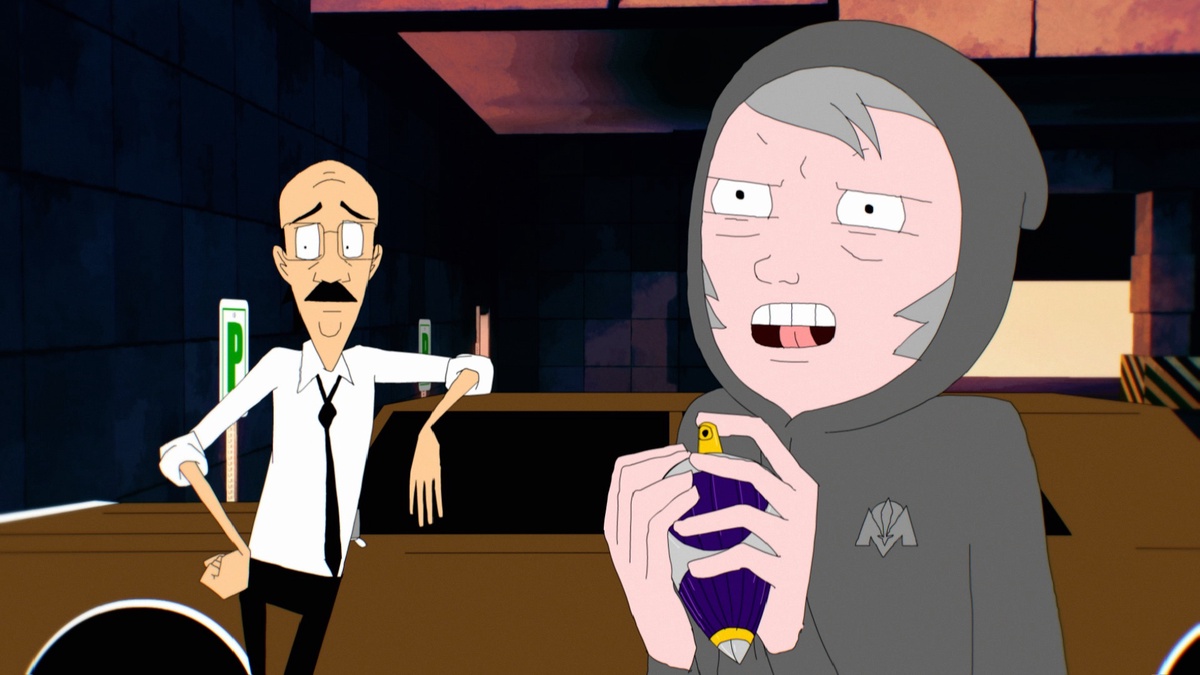
Do any particular moments of improv come to mind?
ML: I was just thinking of particular jokes, and Kayla Lorette, who plays Leslie, is just one of the best improvisers in the country, probably the world, she’s always touring around Europe with her improv partner, and she’s highly sought after, so any time we would set her loose… Her approach to improv is so interesting because the joke would always remain what it was, but she would just tweak the edges in a way that it would end up feeling so real or heartbreaking in these little ways. My favorite bit of improv is in a future episode, where we’re talking about summoning these sacred monks to determine if a teenager will be the new chosen one and Gary’s replacement. And on this line about summoning bells, I think I told Kayla to do something about birds instead of a bell as part of the ceremony. So, her line is burned into my memory, she says “I summoned the monk, and it was a lot of birds I had to release. They didn’t come back…” Then later when she was with her improv partner Becky Johnson, who was playing one of the monks, she improvised “Did you get the birds.” And Becky says “Oh yes, they were delicious.” And Susan says “Oh… okay. Brush that off. Come on in.” Just that journey of the two of them going back and forth and Kayla playing that emotion of a woman realizing that these birds that she clearly loved were consumed, but she has to keep smiling and do her job anyway. Those kinds of moments throughout the show really enhanced everything.
That’s’ great. The Leslie episode that’s already out [Episode 6, “Leslie and Her Demons”] is one of my favorites.
ML: Yeah, we realized as we were writing the show, how much we loved Leslie, and we wanted to squeeze her into later episodes that didn’t originally have her. We thought, scratch all of this, it’s a Leslie show now! By the end, I was like this show is kind of about Gary and his boss, Leslie.

What other surprising shapes did the show end up taking in the latter half of the season?
ML: Well, it’s really interesting. I had never written a season of episodic television before. I had written web series and a movie but never told sixteen individual stories. So there was a lot of discussion about how much weight we wanted to give a season arc, and the further along we got, the less of an emphasis we gave it because we really wanted to focus on this world and getting to know these characters bit-by-bit. We wanted to focus on Leslie, and Marito, and Gary’s brother Steve… The constant question in our heads is how to honor the fantasy worldbuilding we’re doing, while simultaneously undermining it. This is a show about a man coming to terms with his shitty life, and we wanted to focus on both the grown and the non-growth of Gary throughout the second half of the season. If nothing else, you get to explore yet further depths of this sad, sad man. I hope that’s a satisfying answer.
Well, I think that’s exactly what fans of this show want. What other depths of middle age are you trying to explore?
ML: How do I put this? I used to feel that I could do anything. I was doing comedy and I was pursuing like this sort of silly career, but the world was my oyster and I could change at any time. I could go back to school or whatever. But I recently started to have these realizations that, oh no, this is it. Like it or not, I am on this path, and to change would be difficult. And I thought like, oh man, your choice of career really changes when you realize that this is your only career. So your feelings toward it start to become more fraught, and in the case of comedy, you start to ask yourself if this was the noblest career? So a lot of Gary’s kind of place in the show was inspired by that. Being stuck in a situation that from the outside seems objectively cool, and may have seemed so when you started out, but… humans can get sick of anything. People can get sick of anything and become babies and petulant weenies in every possible situation. That’s Gary, he finds the cloud wherever he goes.
I’m thinking of the parent’s episode [Episode 4, “Gary Goes Home”] where they have a shrine to him taking up the entire garage, and he finds fault even there.
ML: Exactly, and he can’t be happy. I think that was a big turning point for us thinking, oh yeah, he’s really gonna stay miserable. I think that my favorite thing about the whole show is the story turn between the second to the last episode and the finale, which is like the absolute height of Gary’s dissatisfaction with any situation. Do you want me to spoil it for you?
Sure.
ML: Guys, am I stupid to say this?
[The others murmur for a moment, but ultimately tell Mark to go for it]
ML: They find a new chosen one, and Gary gets to retire. Then, the moment he gets to retire, he stops wanting to retire. Cut to a year later in the final episode, and he sails the Italian sea on a boat that he owns. Everyone calls him Senor Gary, and he’s miserable. He just wants his old job back. It’s exactly how I feel about my life. I complain about what I do all the time, and the moment I can’t do it anymore, I regret it.
To that end, despair is a mood in adult animation right now, how do you guys navigate that space, and carve a unique niche in it?
ML: One thing we talked about was going small. That was a big choice for us, even in this show about demon hunting. If Rick and Morty is the most maximalist show you could ask for, like the stories are so fast and go to so many places in the span of a single episode. Their show’s first act break is a normal show’s second. They are storytelling cranked to eleven. We looked at that and we wanted to tell stories in the opposite way. If Archer goes around the world in every episode, and Rick and Morty goes all over the galaxy, we wanted to take this world of demon hunting and make the stories as small and personal as we could make them. Our demo was literally a seven to ten minute short about Gary fighting a demon. He then finds out he can’t retire. He goes home and watches TV, and gets so sad he kills himself. Gary has a vision of what death would be like and it’s wonderful. Then he’s revived by the Ministry who tell him not to do that again. So that’s what we wanted it to be; the world shitting and shitting and shitting and shitting on this guy. We think we have to tell stories that do a bit more than that, but we like the scope of that.
LS: The demo still has a special place in my heart.
ML: You can see where Gary has a demon familiar, but then we realized we wanted other characters that could actually talk, rather than just hearing Gary’s gravelly monotone for eleven minutes.
Great. So, another thing that’s a bit different from other shows in your genre is the animation. Lou, can you tell me about the team’s goals there?
LS: We’re using flash, and we’ve kind of worked in a puppet-y space before, so it’s really hard to capture the expressiveness, but that’s exactly what we’re going for. We really want to get that spirit of improv, because that’s what’s lighting in a bottle on this show.
ML: Exactly, what we try to keep in the vocal takes is that moment of someone trying to find the words that they want to use. I think that a fun thing about the show is when we improvise, we tell the actors we prefer if they don’t know what punchline they’re going to arrive at. Because that’s human to watch someone try to make something funny, even if it never quite comes. That failure can be funny, and I think Lou captures the idea of these characters trying to be smooth communicators and failing.
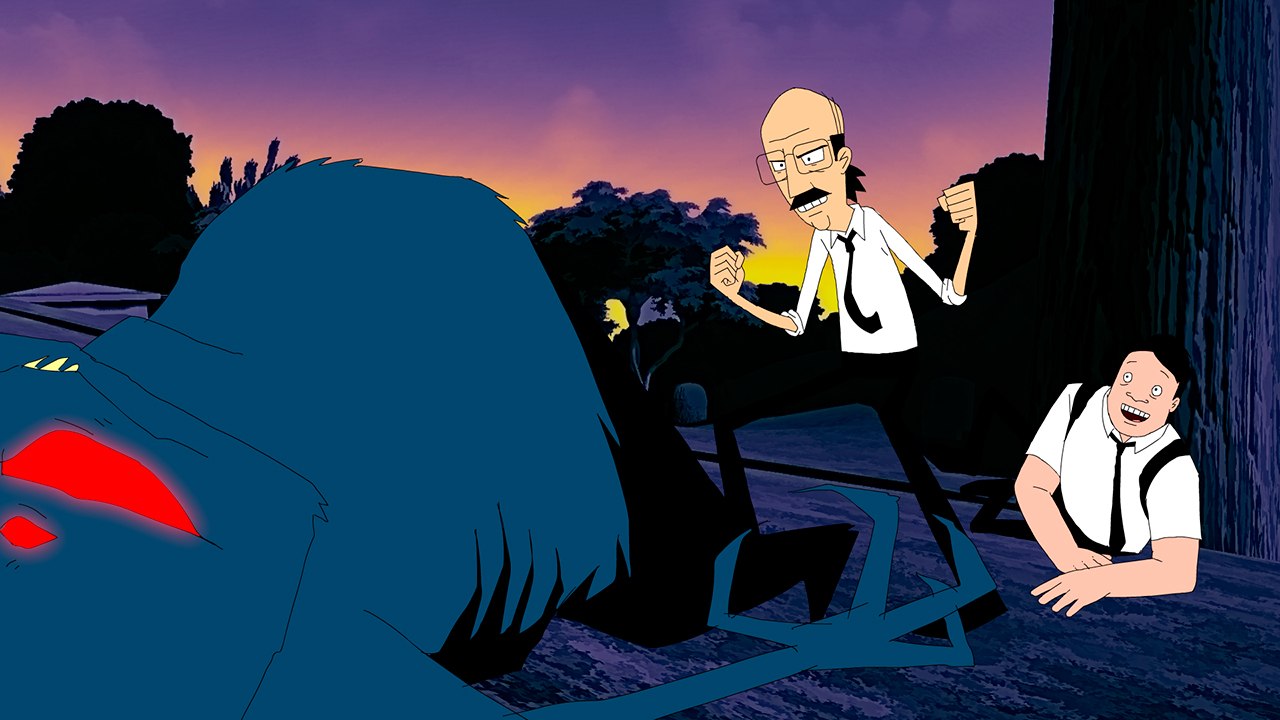
One thing I noticed is that Gary is kind of mediocre at his job. What went into that choice?
ML: We kind of wanted Gary to be someone who’s been doing this a while and become complacent. Like he doesn’t train or take things as seriously as he should. He’s sort of like a late-career Shaquille O’Neil. Like, remember what you used to be? If you just practiced… I think there’s a bit of humanity in it. I like shows where people are experts at their jobs, but I like the opposite of that too, where it’s still a hard job. I also like the vibe of an 80s action hero who gets his ass beat the entire movie but still kicks ass, like a Bruce Willis or an Indiana Jones. They’re always getting shit-kicked, but getting the job done… eventually.
LS: In the animation, we like to show the moments where he is really good and doing incredible stuff, but brief moments of these flashy anime things before he gets pinned.
ML: Like he has the ability to use telekinesis once, and probably if he really tried, he could focus enough to make that a core skill, but he’s never needed it enough to bother. Kind of like if Neo used bullet-time only that once. Like well, we dealt with the main problem; the rest is just housekeeping… Gary is Neo… God, I wish we had two demons who looked like the twins on the highway. If you were going to ask about the biggest regret, there it is.
You caught me. I only have one more question, then. For season two, if you could get anyone to work on the show, who would it be?
LS: I know when we started, I always thought of the show as a love-letter to Buffy the Vampire Slayer… so if we could bring back the guy who played Giles from the dead, him. [Editor’s Note: Rupert Giles was played by actor Anthony Head, who is still living]
ML: Who’s the best voice actor there is? Let’s necromance Phil Hartman.
JB: Paul F. Thompkins, maybe. Would you want Miyazaki there, Lou?
LS: Let’s get him to guest direct an episode.
ML: Kate McKinnon, Billy West, Will Arnett, anyone from The Simpsons. The list is endless.
LS: The first thing I’d want is a full writer’s room.
ML: Yeah, Dan Harmon as a writer. You know, we don’t really have a writer’s room… for the majority of the season, it was me and Steff Kalliner…. That was mostly just a budget constraint, but you never know for season two.
JB: We Adam Reed-ed the season [Editor’s Note: Adam Reed writes every episode for seasons of Archer]
ML: We’ve been talking to Dan Gutterman, who worked on the first three seasons of Rick and Morty. He’s a Canadian guy. You know, Dan Harmon is such a genius of storytelling, and everything they do on that show is amazing. We’d love to work with anyone who works on that kind of stuff. They’d have some things to teach us. It’s so amazing working in Canada in this bubble we have, small budget show, supporting each other. You end up with some out there stuff, like our demo. I remember shopping it around, and it was so crazy. They said “This is a show about a guy who kills himself? What’s episode two?” We stumble onto things that end up becoming gifts to the show, but it would be cool to have some experts in the craft. Or maybe that would ruin us; I don’t know… as long as we keep learning, we’ll be happy.”

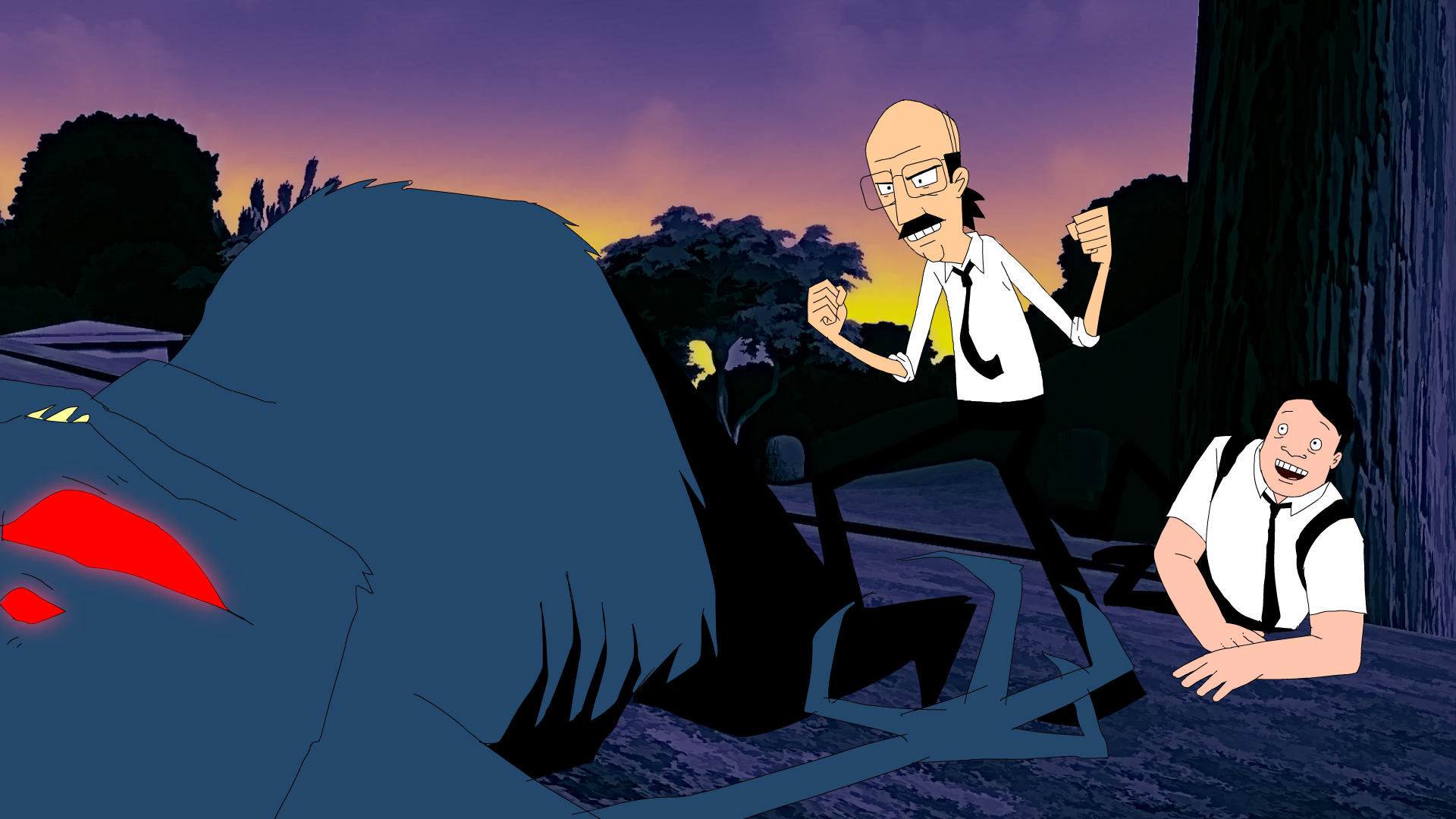

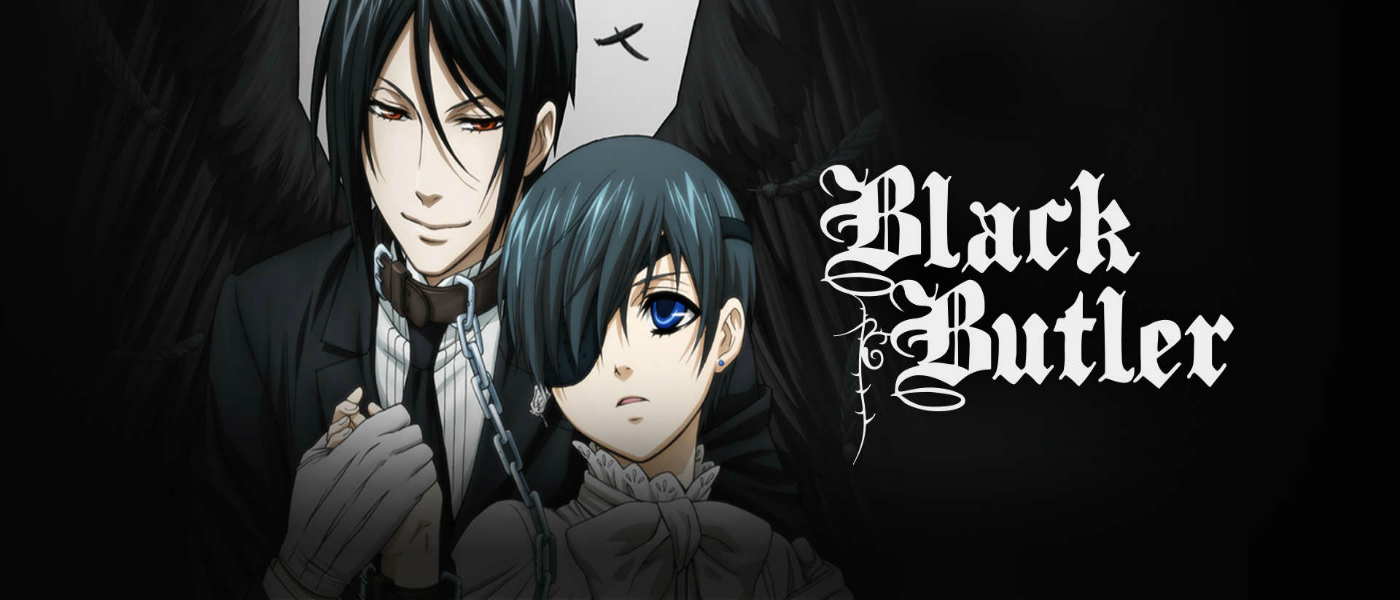

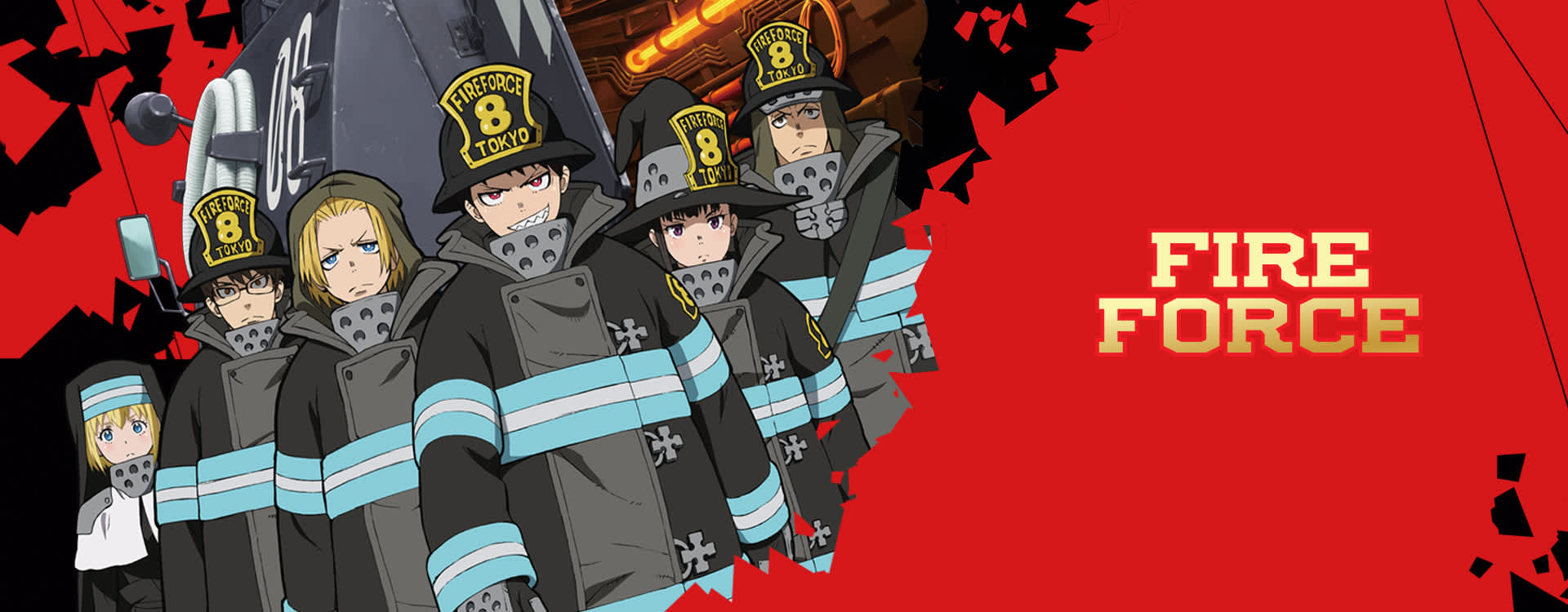


















"There are also other characters that come and go (also owned by the Warner Bros. Discovery conglomerate media company)."
Huh. Is that just referring to other characters from the show itself, or is this implying that the new season is going to have cameos from other WBD IPs